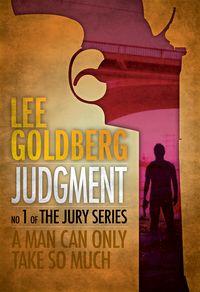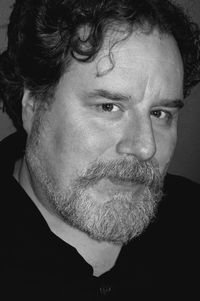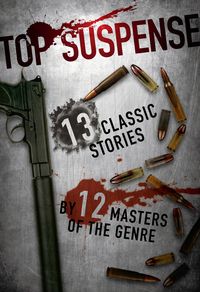There's a very interesting conversation between authors Barry Eisler and Amanda Hocking on literary agent Ted Weinstein's blog today. Hocking kicked off the interview by sharing some eye-opening numbers:
I have self-published eight full-length novels and one novella since March or April of 2010. I thought it was April 15th, but Amazon emailed me on my "anniversary" and said it was March 15th. I've sold somewhere over a million copies in that time (it was 1,030,768 when I last added up totals last Tuesday). I don't know the exact amount of money I've earned, but it's somewhere in the neighborhood of $1.5 – $2 million.
[…]I also have paperbacks made through CreateSpace, and those are available on Amazon and my blog. My paper sales are minor when compared to my total. I think it's around 10,000 copies sold in paperback, compared to over a million in ebooks. The royalties I'm getting on my paperback sales are much smaller than my ebook royalties, too.
As for the St. Martin's deal, I haven't actually signed anything, and I don't know the exact terms of it. What I do know is that the offer was over $2 million for four books world English rights, and the royalty rate is on line with the industry average.
She went on to say that she formatted books and did the covers herself but hired freelance editors to proof them. She also did all of her own social networking PR. Only recently has she brought on an artist, an assistant and an accountant. She has agents handling the sales of foreign and subrights.
My friend Barry wasn't quite as forthcoming as Hocking about his sales figures and earnings (he's an ex-CIA agent, after all)…
Let's see, eight books total, six with Putnam, the most recent two with Ballantine. Off the top of my head, I don't know how many units sold total (hardback, paperback, digital). How much I've earned… also a little hard to say. Some of the contracts have earned out, some not, and there are foreign sales in at least 20 different languages. But the advances have been six and seven figures and I've been making a good living writing for the last decade or so.
Unlike Hocking, he's been at this a lot longer. And he's had the benefit of publishers handling most of the tasks that she took on herself. He says:
I have a circle of family and friends who are all talented editors, for example, and I would never release a book before hearing from each of them. On cover design, I've been consulted, with different results with different publishers. On publicity and marketing, same. I guess the short way of explaining my experience on working with legacy publishers on various packaging, marketing, and publicity matters would be to say, these are areas I've long wanted to be fully in charge of. I've always carried a lot of the weight when it comes to marketing and promotion, and have been disappointed more than once by my publishers' packaging decisions, so the way I see it, going indie won't represent much work that I haven't been doing myself anyway, plus I'll get to make my own decisions. Plus for me, I think indie will be more lucrative.
A big reason behind Barry's decision to leave "legacy" publishing for self-publishing was the money. It just made more financial sense to go out on his own now.
In a typical legacy deal, the author gets 14.9% of the retail price of a digital book. So when my of my publishers sells one of my digital titles at $9.99, I get $1.49 of that. When the same title is self-published at $2.99, I keep 70% of the retail price, or about $2.10. And if fact, I plan on pricing my first self-published novel, The Detachment, at $4.99, which would mean a $3.50 per unit royalty for me. So I don't have to sell as many self-published books as I did legacy; in fact, I can sell far fewer and still come out ahead.
A big reason behind Hocking's move in the other direction was distribution and name recognition. She wants to reach a larger audience, and become a household name, something she thinks a publisher is better positioned to do for her than she can for herself. She wrote on her blog:
I am fully aware that I stand a chance of losing money on this deal compared to what I could make self-publishing.
I honestly didn't do this for money. But let's not forget that as much money as I've made, James Patterson made $70 million between June 2010 and July 2010. Legacy houses (is that what we're calling them now?) have made a lot of authors very rich.
So what do I actually want out of this deal? What do I hope to gain?
Career stability. As an author, I'll never really have one. Each book I come out with could bomb and could be the one that turns readers off me forever. Any day, my books could just stop selling. And I know that going with a house isn't going to change that. Any author can stop making money any day.
James Patterson has a book out now that has incredibly low reviews, some of the lowest I've seen for any book, and that book is still selling like crazy, and I can find it Target and Walmart. Even the sequel to the book, which the reviews say is even twice as awful as the original, is selling like crazy. Why? Because James Patterson wrote it. (Or more accurately, because his name is on the cover).
I want that. Not the writing bad books thing. I'll always strive to write a product that people enjoy. But I want to be a household name. I want to be the impulse buy that people make when they're waiting in an airport because they know my name.
That, I think, is as close to career stability as I can get. And that's why I took the deal.
Clearly, these are two different authors at two very different places in their careers who, from where I am sitting, have made the right moves for their unique situations.
Barry has been at this awhile and has been doing well. From what I can tell, Barry isn't after Patterson-esque ubiquity, he just wants to make more money from his work than he's being offer from publishers right now. And I am willing to bet that he will, even if he sells far fewer copies than he would have before.
Hocking is just starting out at a time when publishing is undergoing seismic changes. Beyond being very talented, Hocking is obviously one very sharp young woman. She knows what she wants and what it will cost her to get it. And she's okay with that. But some chide her for it, like Macy Halford at the New Yorker. She says:
Even though Hocking seems to care about quality, her desire for Patterson-style ubiquity is troubling. She seems to think of herself as a corporation in a way that few writers do, speaking of herself as a commodity with complete ease—she understands that her blogging and tweeting selves are marketing tools, but she doesn’t seem either to mind or to view them as entirely separate from her writing self.
Which is part of the secret to her success. What writer out there wouldn't want Patterson's ubiquity? Or for that matter, Stephen King's or Michael Connelly's or Nora Robert's? Kudos to Hocking for acknowledging it and for leveraging her success in self-publishing so shrewdly that she might actually achieve her goal.
There's a lot to learn from Eisler and Hocking. The big lesson? There isn't just one approach to publishing any more. You now can, and must, find your own path that fits your talent, your skills, your experience, your goals and your potential.
 James Reasoner first stumbled on my .357 VIGILANTE books in the mid-1980s when he was working in a used bookstore. Although he was a voracious consumer of pulp fiction, he'd never heard of Ian Ludlow, and the men's action adventure genre was dying, so he didn't bother reading it. But now he's caught up with it again in JUDGMENT, my new re-release of the first book in the series. He says, in part:
James Reasoner first stumbled on my .357 VIGILANTE books in the mid-1980s when he was working in a used bookstore. Although he was a voracious consumer of pulp fiction, he'd never heard of Ian Ludlow, and the men's action adventure genre was dying, so he didn't bother reading it. But now he's caught up with it again in JUDGMENT, my new re-release of the first book in the series. He says, in part:





